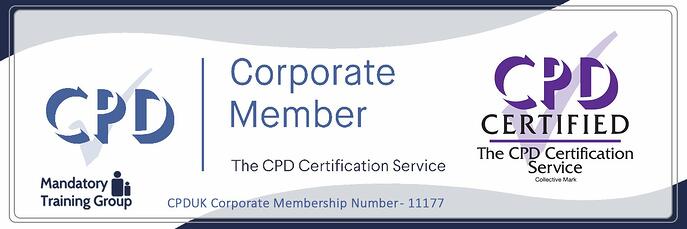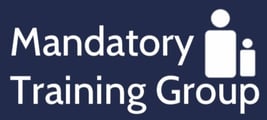Safeguarding vulnerable adults courses cover a range of issues that affect adults at risk, including domestic violence. To improve competencies, we recommend that learners complete safeguarding adults courses at levels 1, 2 and 3.
Our safeguarding adults at risk courses cover domestic abuse and domestic violence. See below the full list of learning outcomes for our safeguarding adults courses.
Key safeguarding adults learning outcomes
The safeguarding adults course levels and core learning outcomes were developed following the Adult Safeguarding: Roles and Competencies for Health Care Staff (2018).
It is essential to emphasise that training is dependent upon role/speciality there may be additional learning needs which will need to be addressed. In most organisations, practitioners will (in addition to the training), be required to meet internal competences and supervision in line with their roles.
Safeguarding adults - Level 1 learning outcomes
On completion of the safeguarding adults level 1 training course, the learner will:
- Be able to recognise potential indicators of abuse, harm and neglect
- Know what action to take if they have concerns, including to whom you should report your concerns and from whom to seek advice
- Have a basic knowledge of the relevant legislation.
Click here to see our online safeguarding adults level 1 training course.
Safeguarding adults - Level 2 learning outcomes
On completion of the safeguarding adults level 2 training course, the learner will:
- Understand what constitutes harm, abuse and neglect and be able to identify any signs of harm, abuse or neglect
- Be prepared to ensure effective advocacy is provided where required (for example where there are mental capacity or communication issues, in line with the legislation and professional guidance)
- Be able to identify your professional role, responsibilities, and professional boundaries and those of your colleagues in a multidisciplinary team and multi-agency setting
- Know how and when to refer to social care following organisational policies if you have identified an adult safeguarding concern
- Be able to document safeguarding concerns in a format that informs the relevant staff and agencies appropriately
- Know how to maintain appropriate records including being able to differentiate between fact and opinion
- Be prepared to identify the proper and relevant information and how to share it with other teams
- Understand critical statutory and non-statutory guidance and legislation including the Human Rights Act and mental capacity legislation in the country of practice
- Be aware of the risk factors for radicalisation and know whom to contact regarding preventive action and support those persons who may be at risk of, or are being drawn into, terrorist-related activity.
Click here to see our online safeguarding adults level 2 training course.
Safeguarding adults - Level 3 learning outcomes
On completion of the safeguarding adults level 3 training course, the learner will:
- Be able to identify possible signs of sexual, physical, or emotional abuse or neglect using a person-centred approach.
- Be able to identify adults experiencing abuse, harm or neglect who have caring responsibilities, for other adults or children and make appropriate referrals
- Be prepared to demonstrate a clear understanding, as relevant to the role, of forensic procedures
in adult safeguarding and knowing how to relate these to practice to meet clinical and legal requirements as required - Where undertaking forensic examinations as part of their role, be able to demonstrate an ability to undertake forensic procedures and know how to present the findings and evidence to legal requirements
- Be ready to undertake, where appropriate, a risk and/or harm assessment
- Know how to communicate effectively with adults at risk, in particular, those with mental capacity issues, learning disability or communication needs
- Know how to contribute to, and make considered judgements about how to act to safeguard an adult at risk
- Know how to help to / formulate and communicate effective care plans for adults who have been or may be subjected to abuse, harm or neglect
- Demonstrate an understanding of the issues surrounding suspicion of adult abuse, harm and neglect and to know how to manage uncertainty and risk effectively
- Know how to contribute to inter-agency assessments by gathering and sharing information appropriately
- Be able to document concerns in a manner that is appropriate for adult safeguarding protection and legal processes
- Know how to undertake documented reviews of your own (and/or team) adult safeguarding, as relevant to the role. This can be conducted in various ways, such as through audit, case discussion, peer review, and supervision and as a component of refresher training
- Know how to deliver and receive supervision within effective models of supervision and/or peer review, and be able to recognise the potential personal impact of adult safeguarding on professionals
- Know how to apply the lessons learnt from audit and serious case reviews/case management reviews/significant case reviews to improve practice
- Know how to advise others on appropriate information sharing
- Know how to appropriately contribute to serious case reviews/case management reviews/considerable case reviews, and domestic homicide review processes
- Know how to obtain support and help in situations where safeguarding problems are requiring further expertise and experience
- Know how to participate in and chair multi-disciplinary meetings as needed
- Demonstrate the skills needed to participate in a safeguarding enquiry.
Click here to see our online safeguarding adults level 3 training course.

Click here to see our online training courses, programmes and qualifications.
